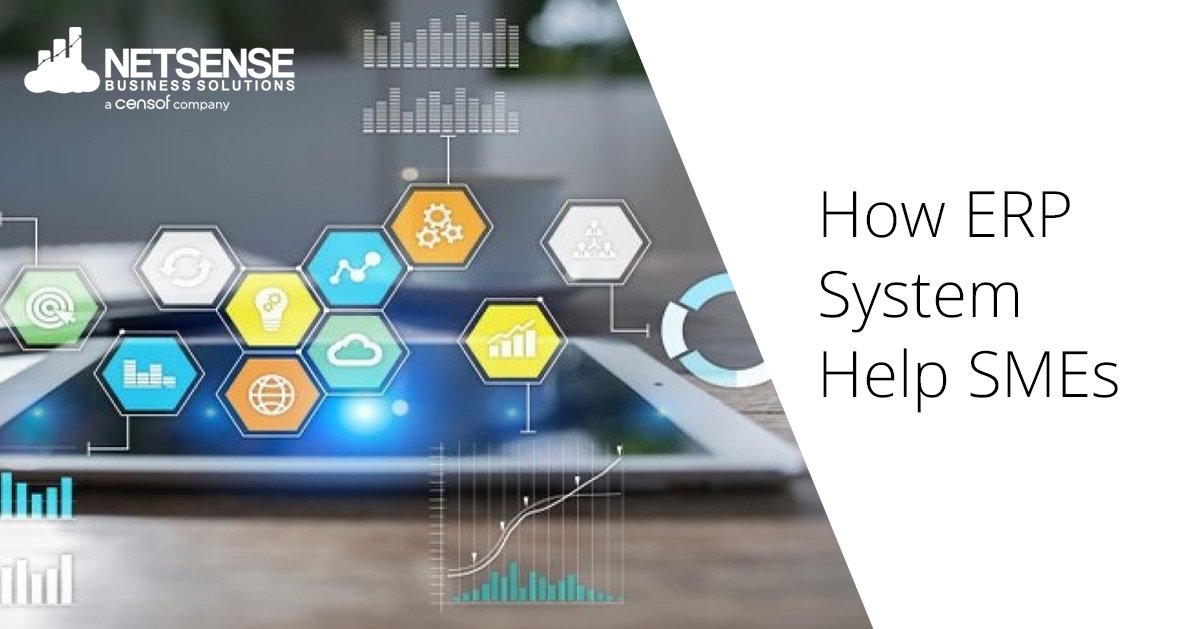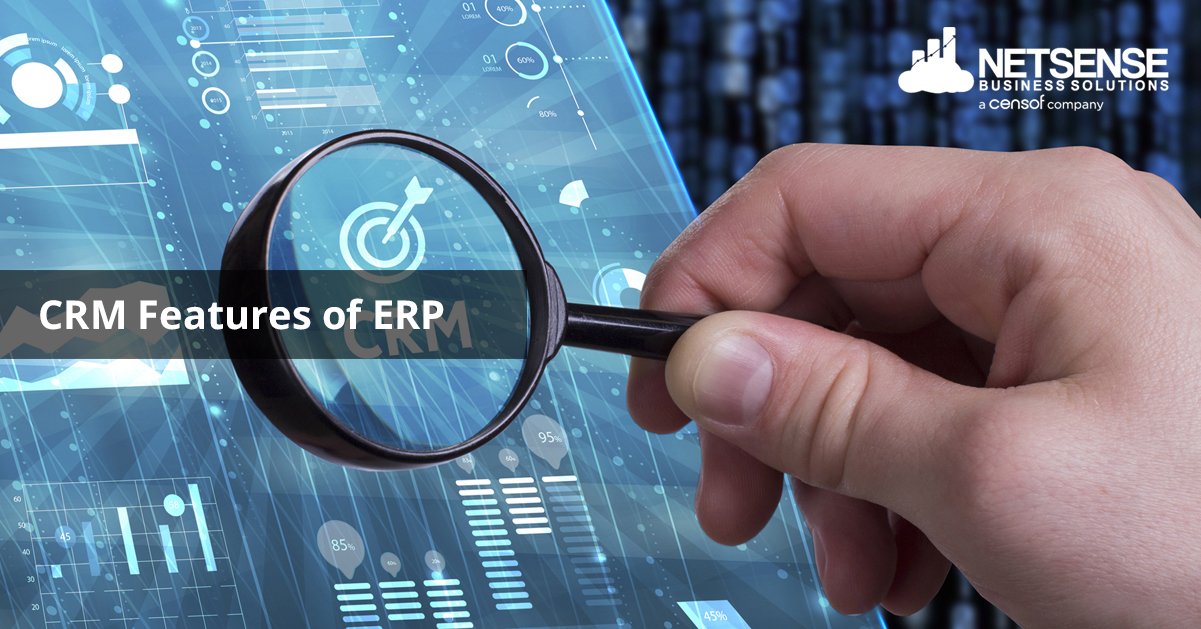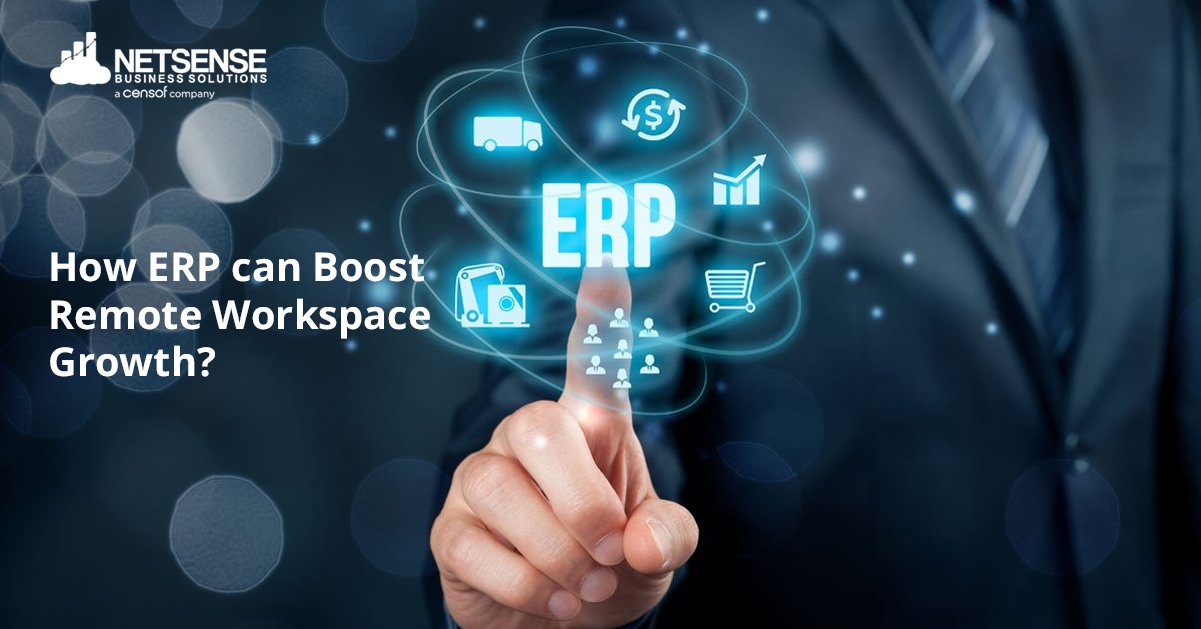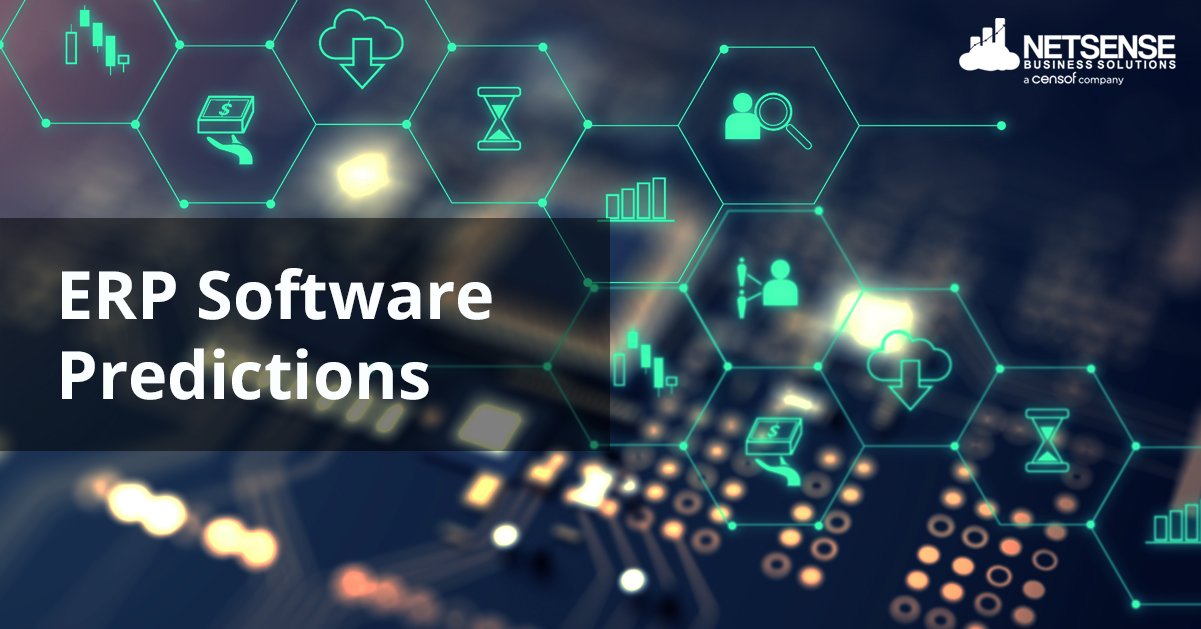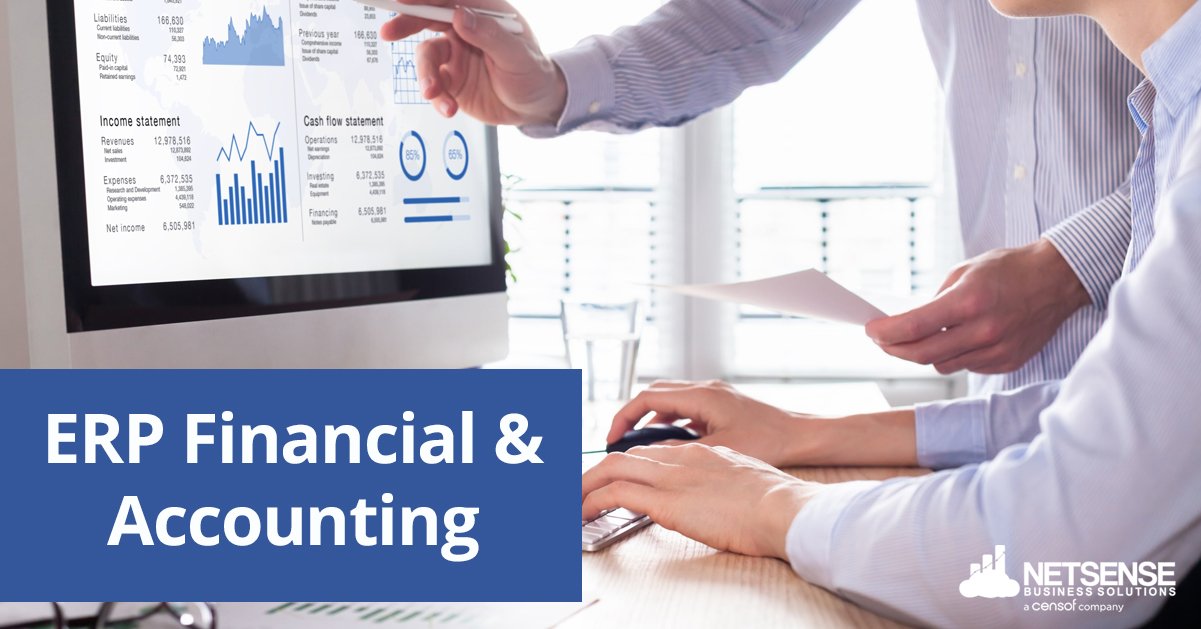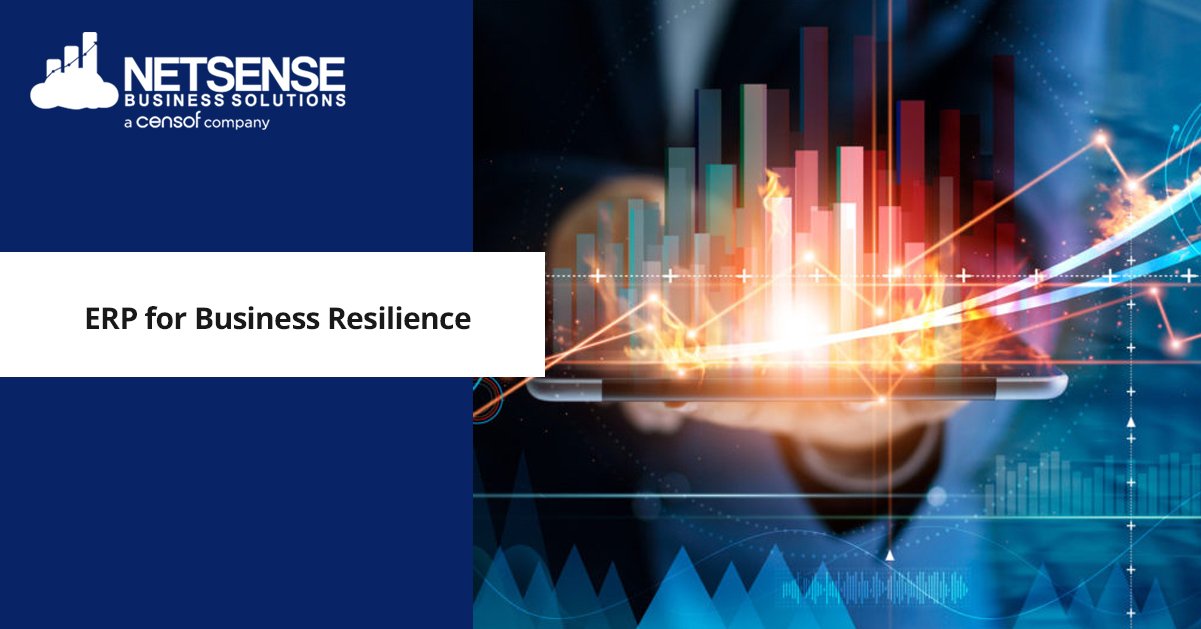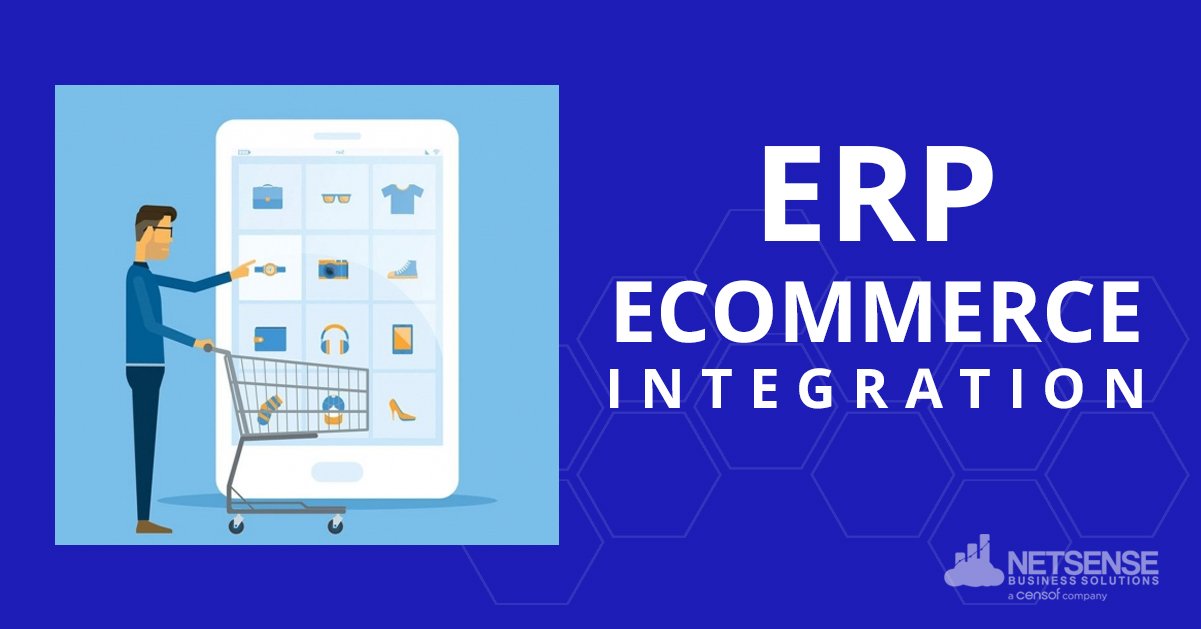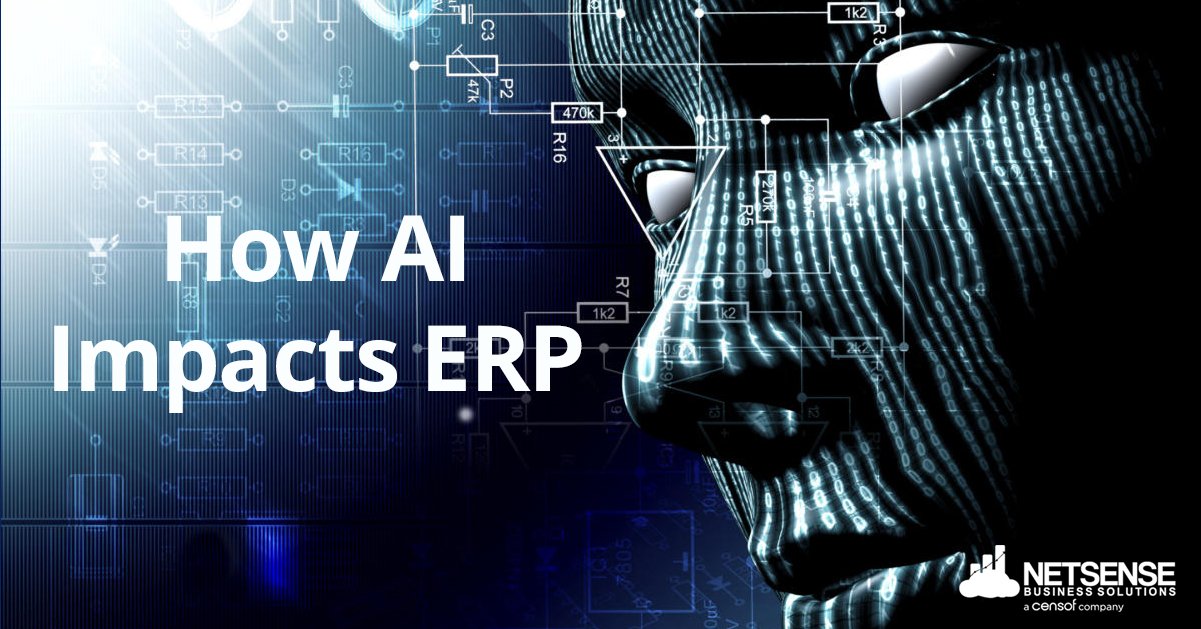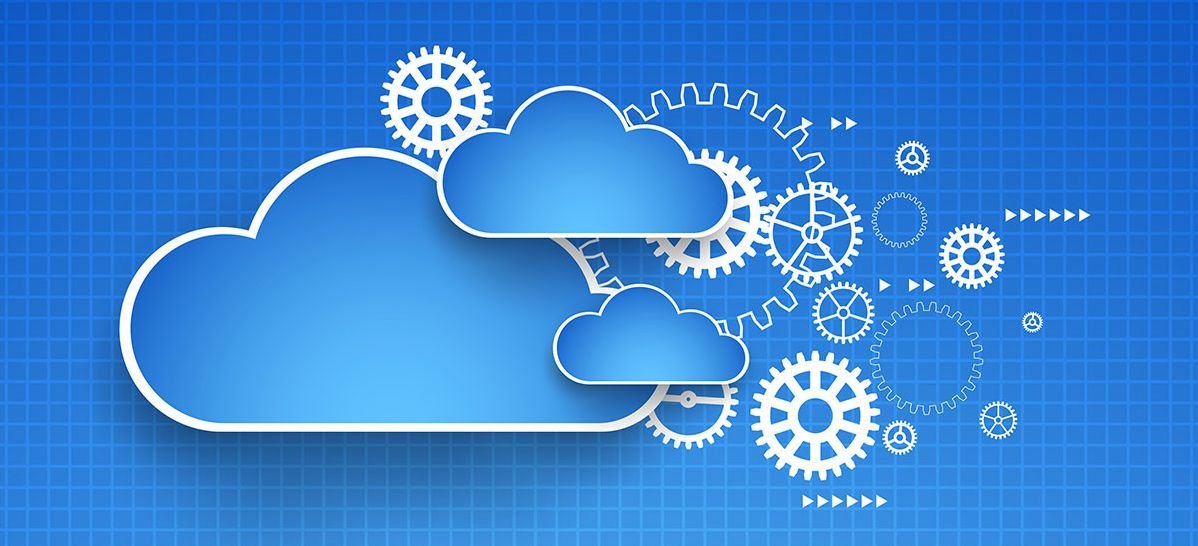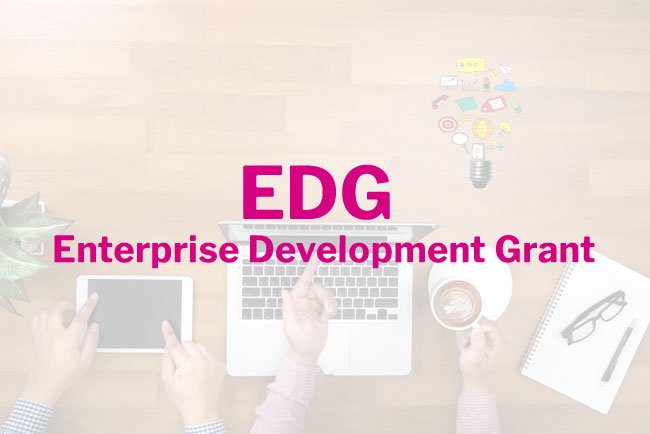The path of business success is packed with plenty of rewards and potential pitfalls. According to the Oxford Economics survey, 64% of Small and Medium Enterprises (SMEs) are leveraging technology to outperform their peers, everything from mobile-friendly software to cloud computing. This means, if you don’t take the necessary steps to stay ahead of the competition, you will lose a big piece of cake. It is challenging to find a way to attain actionable insights and beat your competitors. In order to add value to your business, you can implement an advanced Enterprise Resource Planning (ERP) system to manage and automate a variety of operations across all departments with more accuracy and real-time updates. Let’s take a closer look at what ERP system exactly is and how it can help small businesses to grow to understand whether or not it is a valuable investment. What is ERP Software?Enterprise Resource Planning (ERP) system is designed across a single, well-defined data structure that can help organisations to manage day-to-day operations such as accounting, inventory management, production, project management, risk management, and supply chain workflows. It is a full-fledged software that can help to forecast, plan, budget, and report on a company’s financial results. You can integrate it with a spectrum of business processes and enable the flow of information between them. It accumulates transactional data from various sources, which eradicates data duplication and ensures data integrity with a single source of truth. How ERP System Ensures Better Performance and Results?The ERP system is equipped with manufacturing and planning modules that offer optimum support to a range of operations from start to finish. SMEs generally experience funding restrictions and lack of technical support, but honestly, these reasons were valid back then, but not any longer. Thanks to the latest technological advancements, there are many practical solutions available more than ever. Here are some advantages of implementing an ERP system: Simplify Workflow and VisibilityManaging multiple worksites took a lot of effort and time. Moreover, if there was an issue with one of the contractors, it was so frustrating to make endless calls and site visits. Luckily, the ERP system can transform workflow visibility. Users can simply operate a common database from ERP to get regular real-time updates about production, distribution, and sales. Business Intelligence and Data AnalyticsERP system uses Business Intelligence (BI) tools to offer data collection, analytics, and reporting sources. Users can also evaluate data in real-time and use historical data to make necessary changes to the production runs easily. Scheduling SolutionsWhen workers are assigned tasks in shifts, or when inventory is ready to be delivered and when your warehouses undergo maintenance, scheduling tools in ERP software could be very helpful. It allows effective collaboration among the workforce so that all the members and supply chain partners can stay on the same page. Quick Decision MakingIf you want to keep up with competitors and satisfy more and more customers, you cannot make delays in your deliveries. Fast decision-making is a paramount factor and that’s where ERP system comes into play. With real-time information, decreased errors, and streamlined operations, decisions can be made quickly without any disruptions and obstacles. Risk Management and Data SecurityPreventing your private information from fraudulent practices could be a big challenge. ERP comes with real-time risk management tools that perform automated audits and monitors frauds for additional data security. A single ERP system keeps all your crucial documentation and interactions in one place. Take Advantage of ERP Capabilities Now!As a multitude of enterprise data and workflows are integrated into Enterprise Resource Planning (ERP) system, SMEs can align separate departments smoothly, resulting in substantial bottom-line savings and improved business insights. With ERP delivered as a standalone or integrated solution in the cloud, your business will be future-ready and overtake change. If you’re having a hard time managing your business processes and would like to know more about ERP software, get in touch with our experts today. We’d love to point you in the right direction.
SuperOffice statistics reveal that Customer Relationship Management (CRM) adoption and usage has increased in 2018 to 74% and breaks down further with 91% of companies. This is why, more and more companies are using CRM software to manage customer relations and operations like marketing, customer services, and sales in a structured manner. The improper handling of customer data could adversely affect your business efficiencies in terms of decision-making, sales, and purchasing processes. In order to combat such issues, incorporating the Customer Relationship Management (CRM) module into Enterprise Resource Planning (ERP) system could be a feasible option to generate real-time information across all departments. ERP allows you to simplify business processes, deliver quality products, and enhance your service levels, leading to more satisfied customers and overall growth. But before making a decision, you should know what CRM exactly is, why you need it, and how ERP and CRM fit perfectly together.Let’s dive in. What is CRM?CRM stands for Customer Relationship Management which is designed to organise, automate, and synchronise major aspects of business workflows. It utilises data analysis of customers’ history to enhance business relations, in particular, focuses on customer retention and sales growth. Administrators don’t need to check on scattered spreadsheets for leads and opportunities anymore as CRM enables them to handle prospects and customers from a single system. Pros of CRM: It can help companies to stay organised and store all the customer-related information in one place. It streamlines sales processes, which means better productivity, leads, and ROI. It provides great customer support and interactions. It improves customer experience and can be coordinated through sales, production, and delivery process. How do CRM and ERP Make More Sense Together?Organisations need to maintain good customer relations to achieve success. Additionally, digital transformation and agile work are taken as a key component, putting customers at a priority within all activities. This generates absolute necessity to get a clear picture of customers’ perspective and manage all business processes through one system. A custom ERP system having a CRM function will help you keep records and customer interactions in one place. By having two systems incorporated, you will be more efficient and organised, enhancing your customers’ experience, reducing delays in delivery, and maximising profitability. From customer acquisition to cooperation among employees, processing of orders, and project management, businesses integrated with CRM and ERP in the cloud can expect improved efficiency at every level. Key Features of CRM Software Contact Management ToolsUsers can organise contacts by name, organisation, a number of explicit, and roles through CRM. It entails the list of content management tools such as custom tags, bulk edits, and more which can convert contacts into qualified leads. Lead ManagementCRM users can manage and monitor their leads with various tools designed for lead scoring, lead qualification, lead-specific notification, and segmentation. Workflow ManagementOrganisations can assign tasks to all departments and receive alerts on completed or upcoming tasks. The automated updates allow users to simplify business processes and manage the workload more effectively. ReportingCRM will analyse and deliver real-time reports regarding sales and satisfied customers, keeping consumers’ needs, sales force, and sales pipeline in alignment. ERP sphere has witnessed various computing trends in the past few years and is drastically changing the way businesses implement the enterprise system. Small and medium-sized enterprises can benefit from CRM and ERP, making the software easy to implement and increasing productivity across all departments. A fully integrated CRM with ERP will help to synchronise your sales team and track leads for better opportunities. Wish to manage your customer interactions and business workflows more effectively? Talk to us today!
With the coronavirus pandemic reeling all over the world, a shutdown has resulted and now many companies have adopted a remote work ecosystem to flatten the curve and ensure the safety of their workforce. While telecommuting has been around for years among certain U.S. workers, companies still lack a reliable remote work program that leads to communication breakdown, reporting delays, a decline in productivity, more cybersecurity risks, and much more. In order to ensure that your team members work productively from home, it is necessary to establish clear guidelines that must include daily working hours, task submission process, task updates, and so on. A cloud-based ERP (Enterprise Resource Planning) system can greatly help to facilitate all processes and departments within your company, including finance, sales, production, distribution, customer relations, and even HR departments from anywhere, anytime. ERP system ensures comprehensive work-from-home management that allows teams to work cohesively, even when they aren’t in a traditional office environment. For a completely distributed workforce, we’d like to share a few tips to help companies enhance the functionality of ERP in a remote environment. Empower Remote Work and Efficiency It is essential to ensure that everything from remote-work technologies to workflows and training should be in place. Up-to-date remote-work guidelines will help to improve workforce productivity and business continuity. In order to preserve efficiency, businesses should collaborate with internal and external resources within ERP software and then, train the workforce on new processes and security protocols. Choose Cloud-based ERP Over On-Premise Systems It is vital that key employees should be able to access ERP software via a web-based portal or VPN while making sure configurations for remote work be up to date and tested. Always opt for cloud-based ERP rather than the on-premise system as they are designed to work remotely, also provide immediate scalability and flexibility for potential business needs. Automate Business Processes Organisations should focus on automating manual business practices and workflows to enhance operational productivity in a remote work environment. Say ‘Goodbye’ to the scattered manual spreadsheets and go for ERP solution powered with Artificial Intelligence (AI) to automate multiple workflows such as order, invoice processing, reporting, shipping, warehouse operations, and forecasting. Anticipate Fluctuations in Accounting and Financial Filings Due to the devastating economic effect of COVID-19, companies need to prepare themselves for new accounting rules, balance sheets, and financial filings. ERP software allows businesses to create ledger, fixed asset management, and configure new reporting procedures and accounting policies. Enable Accounts Receivable Processes It could be daunting to connect with entities that have not paid their invoices or deposited the payments. ERP with accounts receivable (AR) modules can stabilise the cash flow and allow companies to send out dunning notes, identify ideal payment terms, and monitor payments. Moreover, focusing on improved communications with customers, offering benefits for early payments, and empowering payment hold may yield better AR outcomes. Streamline Remote Financial Closes The technological obstacles, disrupted systems, and unfamiliar procedures can add time and complications to financial closes. ERP comes with a set of tools and capabilities that can help to remotely monitor, manage, and consolidate close operations. How Acumatica and Netsense Allow Companies to Stay Connected When Working Remotely? In order to overcome challenges and bring great opportunities to the table, we highly suggest organisations stay connected even in the remote environment through online meetings, collaboration rules, and maintain strong connections with co-workers in different geographical locations. In an era of cloud ERP, we still see many SMEs running on ledgers, spreadsheets, and disconnected accounting system, which only results in redundant or inconsistent data. Make no mistake further, it’s time to opt for Acumatica cloud-based ERP solution to connect with your stakeholders, partners, employees, suppliers, and customers, regardless of the location. ERP system allow workforce to access accurate information in real-time, helping managers to delegate tasks to team members, further team members will give updates on milestones achieved, and you can track progress from anywhere. At Netsense, we strive to offer advanced Acumatica ERP system that will be highly transformative for all types and sizes of businesses, helping to meet your current and future business needs. If you’re all set to become a well-connected, agile, and take on the new challenges for better future profitability, Acumatica ERP software is a viable option for you. We’ve enriched countless businesses and would be glad to do the same for you. Feel free to reach out to our experts today!
Since the level of competition is rapidly increasing, the only way to ease your business processes is to modernise the module or system. Integrating an ERP (Enterprise Resource Planning) system into your business workflows could be a viable option to optimise production runs, manage inventory, and solve operational issues to meet the ever-changing industry needs. The addition of new-generation Artificial Intelligence (AI) technology into ERP software has transformed the way how companies operate and the volume to data managed, allowing businesses to make informed decisions. With the fast-pace at which technology is changing, ERP is undergoing a wide range of transformations and you need to keep up with the latest trends to seamlessly consolidate advanced functionalities. 94% of enterprises consider cloud-based ERP as a flexible and safe option, reveals Flexera. This translates to ERP is already a big deal and is expected to grow in the foreseeable future. So if you already have an ERP software or are planning to get one for your business processes, here are some trends you should know about that will dominate the landscape of ERP in the future: – Increase in the Popularity of ERP Systems Modern businesses cannot be able to survive in the long run through obsolete technologies. As new generations of workforce enter among the industries, the users of ERP systems will very likely rise drastically for exceptional customer experience.As per the report by Forrester, the personalised ERP market will cross the US $ 15 billion by 2020, which means businesses will shift to personalisation rather than customisation to manage workflows effortlessly. Future ERP will Future Blockchain Blockchain is proved to be the most secure technology to carry out transactions. After making its way through various enterprise software, it will become a standard component for ERP as well. At present, many companies have already started to integrate blockchain into an ERP system to facilitate shipping and tracking operations. Supply chain management and customer acquisition will become more nascent with this technology integration. ERP Users will shift to Cloud According to the recent research of CenturyLink and Statista, the cloud computing market is predicted to reach the US $411 Billion by 2020. The cloud computing market has matured tremendously but there are still barriers exist however, in 2020, more and more ERP users are likely to switch to the cloud which will hold significance for SMEs.With cloud-based ERP systems, there is no need to maintain in-house infrastructure. Users can enjoy the advantage of a full-fledged system with limited human resources. Artificial Intelligence is Going to Dominate Artificial Intelligence (AI) is already ruling all facets of business processes. Integrating this technology into ERP will help companies to achieve high levels of automation and eliminate human efforts across several functions. The concept of RPA or Robotic Process Automation is making rounds all over which will further help businesses reallocate wasteful human resources to more efficient avenues.Chatbots is another addition to artificial intelligence that will reduce operational costs and reallocation of funds will take place through the automation approach. Mobility and Wearable Technology to Lead While industry experts emphasise more on SaaS and cloud, mobility will be a key component to turn dominant in the ERP sphere by 2020. Ranging from management staff to back-office workforce, and store personnel, everyone is predicted to use ERP system through mobile devices instead of desktops. As unparalleled flexibility via mobile ERP is about to rule, it’s high to brace yourself for a new era with wearables and third-party applications for effective synchronisation. As ERP systems will change, the current features will go through major updates and merge with artificial intelligence, blockchain, IoT-enabled devices, and other technologies that will allow companies to make smart business decisions. Therefore, companies shifting to ERP need to be flexible and agile to adapt to the new changes and improve business workflows comprehensively. Have any queries regarding enterprise management solutions? Get in touch with our experts to attain a clear understanding and solve your business challenges.
Scattered spreadsheets are no longer a viable option for synchronising journal entries, creating transactions and reporting, especially when demands and requirements of businesses are growing immensely. Unification and automation capabilities are the two core aspects to add value to your business and this is where Enterprise Resource Planning (ERP) system never fails to impress. With ERP integrated with financial and accounting functionality, the operators can seamlessly monitor all transactions with real-time updates and alert sales managers if any order is produced. ERP financial system works across all departments in the company, allowing you to make better-informed decisions and increase operational productivity. Are you still wondering would it make more sense to invest in an ERP solution that already comes with financial and accounting modules rather than a standalone accounting software? Let’s find out! The Value of ERP Accounting Software Integration With standalone accounting software, manufacturers can standardise and simplify repetitive tasks, ranging from journal entries to reviewing orders, and scheduling. However, the ERP system with financial modules can stretch your experience beyond the accounting department. This is a complete solution to attain visibility into the way your business functions in a centralised platform. It helps you gain useful insights into critical areas for not just accounting but also in sales, warehouse, marketing, and human resources. It allows operators to accumulate financial data and then drive reports with more accuracy to external resources through various functionalities such as accounts payable, general ledger, budgeting, and more. Without its integrated functionality, you cannot expect to effectively conduct more advanced business processes such as automatic reordering points. A standalone accounting system requires data inputs from various sources but ERP-based accounting software can automatically combine multiple data sources, including manufacturing management, logistics, HR, and so on. Top Features of ERP Finance and Accounting Modules Profit Tracking Evaluating your business profitability will show you the areas where profits are generating while determining the return on investment for any purchase. It will also help predict future profits based on historical costs and sales information. Its profit tracking capabilities will help you to get a real-time view of your financial resources and overall financial stability of the company. General Ledger Management A general ledger gives a complete record of all financial transactions and nothing could be better than the fact that this functionality is integrated with ERP systems. Having every financial information in alignment can help you track numerous tasks such as liabilities, capital accounts, assets, and expenses and make filing tax returns easier. Accounts Payable This accounts payable feature combines your payable data with the purchasing system so you can examine and control the flow of cash. Automating these tasks with an ERP solution will help you save a lot of money and time as well as eliminate human errors. In simple words, this feature will let you know how much exactly you owe and when it is due, so you will never face delays again. Fixed Asset Management This feature helps to manage and monitor all of your company’s tangible assets like manufacturing equipment, office space, etc. It will give you better visibility in terms of depreciation calculation, tax implications, costs, usage, and maintenance. Tracking your assets will avoid paying taxes on items that you have removed and also bring significant sales tax savings. Risk Management It is vital to forecast, analyse, and manage crises to control risks and eliminate concerns like security, legal liabilities, and reputational risks. From a financial aspect, it can help you to track any cash flowing in and out of your business. This will also ensure you have enough cash to meet accounts payable if a customer fails to pay. How Acumatica ERP for Financial Management Can Support Your Business Needs? Acumatica ERP financial management system is designed with best-in-class accounting suite, integrated with Customer Relationship Management (CRM), manufacturing management, distribution, field service, and project accounting capabilities. It is a power-packed solution that is simple enough for both SMEs as well as multi-nationals, supporting the business needs at the present and in the future. You can close your books quickly and easily with Acumatica ERP timeless automation and workflow capabilities. It can manage various entities such as automated reporting, cash management, and consolidation. It allows you to gain accurate, regular visibility into your business operations with financial reports and dashboards that access the centralised database. You can reach global markets effectively with cloud multi-currency, multi-language, and multi-company functionalities that work locally and internationally. At Netsense, we offer advanced accounting and financial modules in our Acumatica ERP software, so now say ‘Goodbye’ to the time-consuming consolidation of cash flow statements as you can easily generate automated and personalised reports with our complete ERP solution. You can manage a full suite of accounting functions to monitor regular financial operations and generate timely financial statements. Let us help you to manage all your accounting and financial needs with our full-fledged Acumatica ERP system. Feel free to speak to our experts today!
Are your business and team members struggling to adjust to the new normal at the present COVID-19 pandemic hit? Or, are you facing many challenges from economic, upheaval, financial instability, and other events? Well, it isn’t easy to keep your virtual door open during tough times. In such cases, businesses need to re-think their financial and asset management, make changes to their supply chain, and redefine their overall strategy. While most companies still rely on video conferencing platforms, that being said, Cloud ERP (Enterprise Resource Planning) system is way more than this, extending businesses beyond the brick and mortar. In a crisis, ERP software plays a significant role in sustaining business continuity. When it comes to unexpected disaster recovery and planning across different industries, ERP integration will offer the right infrastructure that benefits now and prepare you for whatever the future holds. Let’s take an in-depth look at ERP capabilities that prove to be effective for organisations that don’t know how to maintain business continuity during sudden disasters. How Cloud ERP Works Beyond the Four Walls of the Brick and Mortar? When the unprecedented coronavirus outbreak first hit, many companies were striving to figure out how to maintain operational productivity in a virtual space while keeping the safety of employees in check. The next concern was to ensure team members could work remotely and the biggest question was, “How do companies align 2,000 people work remotely and make sure they can be efficient at the same time?” This has increased the people’s level of interest in the Cloud ERP system because of ‘accessible anywhere’ functionality, improves operational and financial productivity, regardless of industry, size, location, and operational method. Cloud-based ERP technology powers businesses globally, allowing them to run smoothly from anywhere, anytime. During tough times, companies are still serving clients and customers with efficiency, agility, and functionality right from the comfort of their homes. Proven ERP Strategies for Business Continuity and Disaster Recovery Whether the economy is rising or falling, there is no wrong time to implement an ERP solution as it assures business continuity in the scenario of a crisis. Businesses require a powerful platform for financial management, production runs, distribution, sales, inventory management, and more. This way, when disaster hits, you won’t be left unprepared instead, you will be evaluating assets and shaping a solid plan to cope up with the disaster. Cloud-based ERP acts as a fundamental seed that not only just focuses on survival but also serves the aim of organisations’ growth. It emphasises on making valuable decisions, such as: How do you structure your data across all departments? What type of reports and analysis do you really need to streamline business processes? What kind of analytics can help you to make better-informed decisions? It is extremely important to analyse your current market situation, see what’s happening with prospects and consumers, and make sure you have the right software like ERP in place so you won’t get stuck in the middle of a crisis. How Acumatica and Netsense are Helping Businesses to Maintain Business Continuity? At Netsense, we are working tirelessly to harness the power of the cloud, scalable technology, and cohesive to bring a powerful Acumatica ERP system to the table that drives operational efficiency, no matter wherever you go. It has the ability to streamline business processes, reduce risks, automate workflows, with a full-fledged Cloud ERP system. It will help all sizes and types of businesses to access vital information in real-time safely from anywhere, at any time, on any device. This advanced solution allows the workforce to work from anywhere and maintain business continuity during any crisis because they can run anything smoothly in the cloud. Acumatica ERP is all based on flexibility and growth, uses development languages, and standard web technologies to meet business needs. If you’re looking for a cloud-based solution to manage all facets of your business, you can never go wrong with our Acumatica ERP software. For any further queries or if you’d like to schedule a demonstration, connect with our experts today. The event of a crisis will ultimately come to an end, but you always need a well-connected team to reach your goals. Let us take your business to its next stage of growth with our one-in-all ERP solution.
The e-commerce market has been drastically transformed in terms of functionality and the way they operate as online businesses nurture, and brick-and-motor retailers seem less prominent. In a fierce competition, operators need to adopt new mediums to ease their operations and stand out from the crowd. The e-commerce business holders can only thrive when they focus on streamlining processes, reducing expenses, maintaining supply efficiencies, and discovering new ways to build customer relations. Enterprise Resource Planning (ERP) system integrated with online sales provides game-changing opportunities, saves time, and drives consistency which adds more value to your business. With the successful front to back flow of business operations, operators can access necessary information such as customer profiles, sales order, stock availability, pricing, deliveries, and other financial analysis seamlessly. In this post, we will look further into some benefits of ERP e-commerce integration, how enabling ERP functionality will play a significant role in the future, and which could be the best solution for you. So let’s get started! How ERP E-Commerce Integration Can Benefit Your Online Business?Since e-commerce market leaders need to perform tasks quickly and at a large volume, they cannot ignore the absolute need for a dedicated system equipped with automation capabilities and real-time updates to achieve success. Here are some great possibilities e-commerce businesses can expect with ERP software: Improved ProductivityERP software has the power to increase operational productivity by uniting several workflows and automating the flow of information. You can automate functions like delivering shipping notification and bank reconciliation, which results in fewer delays, less wasted resources, and fewer human errors. Centralisation of Sales InformationIt could be a daunting task to keep sales information organised, especially when it flows from different departments. One of the main advantages of ERP integration is that it can consolidate information from multiple locations such as brick and motor stores, catalogs, online, etc. through automation capabilities that make insight development more efficient. Generate RevenueEvery business tends to look for innovative techniques to generate maximum revenue. ERP solution can help e-commerce businesses to earn better profitability pertaining to increased productivity, automation, and so on. A Nucleus Research found that the average amount of benefits that a business receives for every dollar spent on ERP software is $7.23. Thus, a successful ERP integration can drive revenue benefits that even exceeds the initial implementation costs. Strong Customer RelationshipsMany ERP system comes with Customer Relationship Management (CRM) functionality which can offer customers’ information based on demographics, past sales, orders, sales leads, etc. You can also automate the process of monitoring shipments and sending notifications when a product has been delivered to its intended location. By simplifying these processes, you can attract more customers, make a good impression, and increase customer retention rate. Will ERP System Continue to be Important for E-Commerce Businesses in the Future?Well, the short answer is definitely yes. A study from the United States Commerce Department reveals that the total market share of online retail sales in February 2019 was more than the general merchandise for the first time ever. This translates to more people are adopting online solutions to purchase items and certain offers will never fail to impress. Today, there are still a lot of middle-ware solutions that step back and forth between systems, but as ERP system changes and starts to incorporate modern technology, operators can easily exchange and manage data in real-time with more accuracy. How Acumatica ERP System Ensures Your Business Continuity and Productivity?Acumatica ERP System combines all the important components for best-in-class multichannel fulfilment, including inventory management, shipping, packaging, returns, customer support, and accounting under a single database. This is a full-fledged solution to optimise your stock levels, automate your business processes, and gain a single source of truth to accelerate your business efficiency. It offers a centralised view of your business, where operators can attain real-time information of orders, inventory, and profitability based on product and location. It also involves unique capabilities in its system and CRM modules make an optimum addition to any e-commerce solution. Finding the right ERP system is extremely important to reduce the risk of errors and deliver high performing results to enhance your customers’ experience. This is why, at Netsense, we offer advanced Acumatica ERP solution that streamlines your business processes and takes your company’s growth to the next level. You can also schedule a consultation with us and see Acumatica ERP in action to make a better-informed decision. Feel free to reach out to us for further assistance.
The advancement in the usage of Artificial Intelligence (AI) within the enterprise system ecosystem has always created a buzz among industries across the world. Artificial intelligence and machine learning are showing excellence in optimising operational models and managing business operations with ease and accuracy. In fact, Gartner predictions reveal that by 2021, 80% of emerging technologies will utilise artificial intelligence as a key component. Since this technology is going to become highly prevalent in the coming years, it is a viable option to optimise your ERP (Enterprise Resource Planning) system for fast-forward AI to gain a competitive edge over others. AI in ERP software offers real-time data insights, allowing companies to enhance their operational efficiency, maximise ROI, and reduce overall costs. Impact of Artificial Intelligence (AI) on ERP System AI-powered ERP systems can positively affect the core operations of an organisation by streamlining everyday operations, reducing operational expenses, and eradicating human errors. It allows users to attain actionable data insights, superior access, financial controls, and smart production management. A technologically advanced ERP system assists companies in discovering and leveraging massive volumes of structured data, eliminating errors, and complex business challenges. ERP systems with AI can automate routine activities and identify patterns which gives organisations an unparalleled efficiency and functionality. Having a clear picture of your customers’ operational data, you can easily unlock the real potential of your data and manage your mundane tasks diligently. Three Areas that Can Be Managed Well with AI-Powered ERP System Data Management and Business Intelligence Leveraging your data to make rational decisions could add more value to your business. Industries like manufacturing can access real-time data, regular production updates, and customisable reports, at any given time to solve their toughest business problems and streamline decision-making processes.AI and machine learning can transform the way how ERP handles and optimises data. For instance, AI can evaluate the purchasing behaviour of different clients, allowing you to alter your inventories directly to meet the needs of customers. AI can also deliver historical data and behavioural patterns which can help you to create an accurate quote for your consumers. Automating Business Processes Routine tasks like month-end closing and invoice can consume hours or even days to complete, which may lead to delays and wasted resources. The ERP system can assist operators with scheduling, accounting, process automation, and inventory management, allowing the workforce to focus more on core objectives to achieve goals faster.AI technology can strengthen your ERP system’s performance, giving the ability to learn and make smart decisions, align routine tasks such as payroll administration and accounting effortlessly. AI-enabled ERP software detects the wasteful process and recommends a solution to minimise wasted resources, cut down the cost, and enhance efficiency. User Experience Some businesses may find ERPs complex and intimidating, especially when they are learning it right from scratch. In such scenarios, AI technology integrated into the ERP system proved to be very helpful in decision-making based on human input, which handles both structured and unstructured data and then delivers it in a clear and user-friendly manner. While ERP systems have effectively integrated different business aspects, artificial intelligence has created a channel for analysing a large amount of data, making useful predictions, and suggesting further steps for the smart decision-making process. As AI technology matures rapidly, now is the right time to opt for an AI-powered ERP system to enhance operational efficiency and user experience.
Should you go with an On-Premise ERP or a Cloud one? This is one complexity that all small businesses face in the initial stages of platform set-up. Reporting, analytics, automation, AI integration and all such aspects are to be integrated unified for increased efficiency and organizational process management. All these could be effectively managed when you have a strong Enterprise Resource System (ERP) platform. But picking what medium is a bog question, especially when you are new to this. Would a cloud based one offer more detailed and accurate analytics than an on-premise one? Which one would provide faster reporting? Which would help you in getting quick insights? Cloud ERP – Is it Better Than On-Premise? If you consult a professional ERP solution service provider, and considering the changing business market, scalability expectation, it is safe to assume that the cloud option is gaining more popularity and adoption. Not assured? Don’t worry. Cloud ERP is highly convenient and modern way for small and mid-size SMEs to incorporate in their flexible business culture. But how? Read on to know: Low Upfront Cost The most concerned issue for small businesses and start-ups are the added IT infrastructural costs, which they are looking to avoid, but don’t want to compromise on the tool’s capability and high-end solutions. Going the cloud way provides the best solution for them.As the cloud based ERP is hosted by the vendor, small business owners are saved from the complexity of infrastructural aspect. You can choose the monthly payment or annual subscription mode. It provides high scalability, less maintenance cost, and easy configuration. High Scalability for Future Your business structure, your client base, your market needs, customer demands and in core your business process won’t remain the same. So you are going to get your IT to change and adapt according to that. This is where we all look forward to a scalable solution that can grow with respect to the changing environment. This is rendered excellently by the cloud based solution, whereas with an on-premise platform you need to go for a complete overhaul. Easy and Quick Deployment You have a lot on your table right now, and can’t commit to stressful and time-consuming IT deployment. Worry not. Cloud based ERPs function over the internet and this is a basic infrastructural need all you have to arrange for. Improved Flexibility Today we look at technology and tools which can not only enable the business capacity to run at its full efficiency but also need the need of tomorrow’s expansion. We live and work in an environment today where we want a technological aspect to not just cover one basic, but be able to fulfil multi-facets. This efficient model helps drive future growth, easy adaption of mew resources into the system. Higher Mobility A workplace isn’t just your office desk. It can be the living room of your home, a café, your tablet or smartphone. You want to be connected to all the specific points of your business at all times from anywhere. Cloud based ERP makes this a breeze for you. High Data Security It has been observed over the years that with strengthened internet policies, improved network architecture, and focus on cloud as the business enabler, we have ERP platforms with remote access that provides enhanced data security.Cloud based technological architecture has come a long way, and it is not something to fear anymore. As small business owners have a lot to ponder over and limited budget, leveraging the cloud benefits will prove not missing out on the technological capability all the while making it simplified and resourceful. You can adopt Acumatica ERP implemented that helps you get the best from a resourceful solution while also making best use of streamlined and cohesive online process.
How Enterprise Development Grant (EDG) Can Supercharge Singaporean Companies During Recession? Now more than ever, companies that foster are the ones that have well-connected teams, powerful business strategies, think innovatively, adapt the latest technology and reach the audience globally. This is where Enterprise Development Grant (EDG) comes to the rescue, a program offered by Enterprise Singapore (ES) to support companies in the journey of becoming successful. The EDG provides all-inclusive support to businesses who wish to thrive, innovate, venture overseas, or are set to go on board on any combination of these tactics. Since unprecedented coronavirus pandemic has adversely affected many sectors, recently, the maximum support level of EDG has been increased by up to 90% which means Singaporean SMEs can gain up to 90% government grants to meet the expenses of qualifying projects. Still, wondering what exactly is Enterprise Development Grant (EDG)? How it can assist with companies’ expansion? Read on to attain a clear understanding. What is the Enterprise Development Grant (EDG)? The Enterprise Development Grant (EDG) is a program managed by Enterprise Singapore (ES) to help Small and Medium Enterprises (SMEs) in Singapore to create a strong business foundation, use advanced practices, and boost productivity, by offering them financial grants. It is created by combining two previous grants i.e. the Capability Development Grant (CDG) and the Global Company Partnership (GCP). The original EDG defrays up to 30% to 70% of qualifying project expenses, vary depending on whether it is a Small Medium Enterprise (SME) or finances are required for software and equipment. However, to lessen the negative impact on companies due to the COVID-19 outbreak, the Enterprise Singapore (ES) has announced that the subsidy will meet up to 80% of the costs depending on cases that will remain valid until December 31, 2020. And those companies who have shattered by the novel coronavirus will qualify for 90% grant support. The Three Core Pillars of Enterprise Development Grant (EDG) The grant gives optimum support to projects that help companies to strengthen their business foundations and improve efficiency under the three pillars, that include: 1. Core Capabilities Project under the category of Core Capabilities support companies for increased growth by strengthening and stabilising their business foundations. The projects basically involve: Business Strategy Development Building a new set of business strategies that bring better opportunities and give a competitive edge over others. Enhance research and development activities. Improve management systems with the Business Excellence Framework to obtain the ‘Singapore Quality Class’ certification. Financial Management The purpose here is to analyse companies’ financial stability to facilitate corporate growth and prepare their management teams with the necessary skills. The projects include: Developing proven strategies to drive profitable investments. Risk exposure evaluation and use of risk management procedure. Human Capital Development The aim here is to improve Human Resource (HR) capabilities of companies to make the best out of business expansion tactics. The projects include: Reshaping Human Resource (HR) management. Offering compensation and benefits. Assisting with the skill development of the workforce. Service Excellence The objective here is to enhance the delivery services of companies by attaining a clear knowledge of consumers’ needs, behaviour, and decision-making procedures. The projects include: Evaluation of customers’ requirements and decision-making strategies. Applying genuine service delivery tactics to enhance the customer experience. Strategic Brand and Marketing Development It serves the purpose of helping companies to attract the potential target audience and various markets more effectively by distinguishing between brands, products/ or services. The projects cover: Development of impeccable brand strategies focused on a unique selling perspective to reach customers. Advancement of business marketing and communication plans. 2. Innovation and Productivity Projects under the category of Innovation and Production allow companies to discover diverse areas of expansion or seek strategies to boost efficiency. This can cover examination and reshaping workflows and procedures. Companies can also use automation and technology to ease their everyday tasks. The projects involve: Automation Companies can opt for automation tools like ERP software to simplify their business processes, create daily operations more productive, and attain real-time insights into their businesses with a constant focus on growth. Process Redesign Before taking advantage of automation, companies are advised to optimise their existing business procedures and determine certain areas to enhance productivity. Product Development Companies are motivated to innovate and renovate themselves to develop efficient products for commercial usage. 3. Market Access Projects under the category of Market Access support Singapore companies that are willing and prepared to expand overseas. In such cases, companies can utilise Enterprise Development Grant (EDG) to help cover some of the costs of thriving into overseas markets. The projects involve: Mergers and Acquisitions (M&A) This may be in the planning, assessment of potential mergers and/or acquisition or post-M&A staThis covers planning, evaluation of possible mergers and acquisitions, or post-M&A stage integration. Overseas Marketing Presence (OMP) The main is to support companies to grow into new markets by establishing a presence overseas to begin marketing and business development operations. Pilot Project and Test Bedding The goal is to support companies to grow into new geographical or product markets by setting their track records. Standards Adoption The purpose is to support companies to adopt internationally-claimed standards and certifications in respected industries, as well as new and developing sectors. How EDG is Different from CDG and GCP? Previously, the Capability Development Grant (CDG) offered by SPRING Singapore was designed to support companies in capability development. On the other hand, the Global Company Partnership (GCP) grant offered by International Enterprise Singapore (IE) was established to help companies reach overseas. The Enterprise Development Grant (EDG) is a single grant that offers complete help to companies who want to upgrade, strengthen their goals, and venture overseas. As we have discussed, the supported projects meet a wide scope under three main pillars – Core Capabilities, Innovation and Productivity, and Market Access. Who is Eligible to Apply for the EDG? Companies with the strong financial background are certainly eligible to apply for the Enterprise Development Grant (EDG), however, they are required to meet
